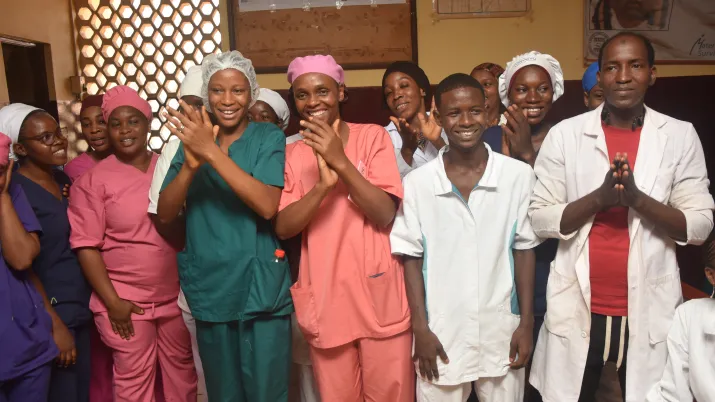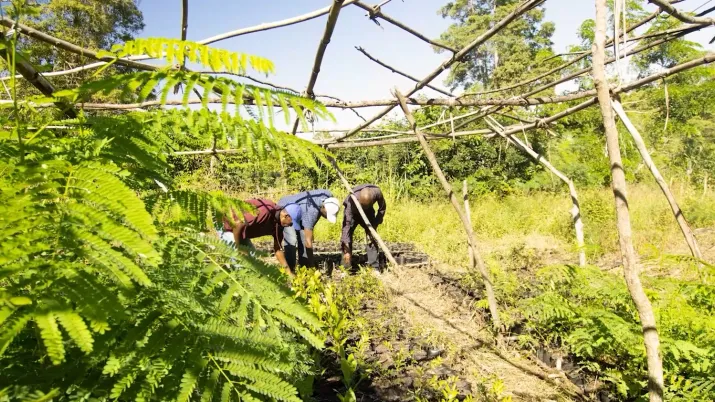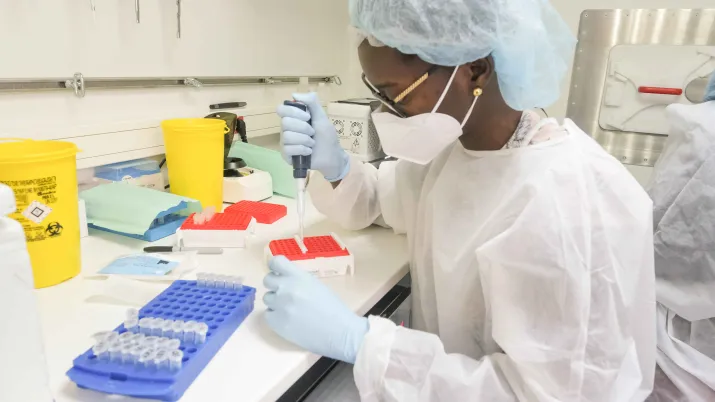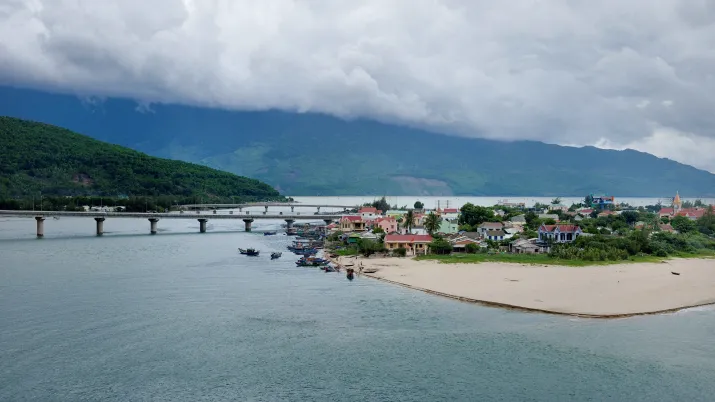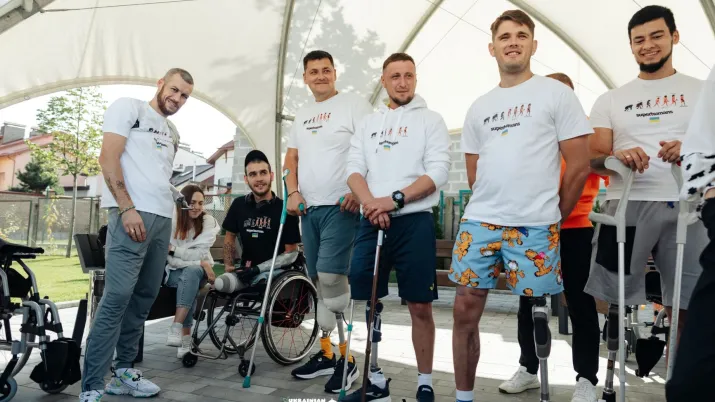Share the page
Project to Strengthen Public Health Human Resources
Project
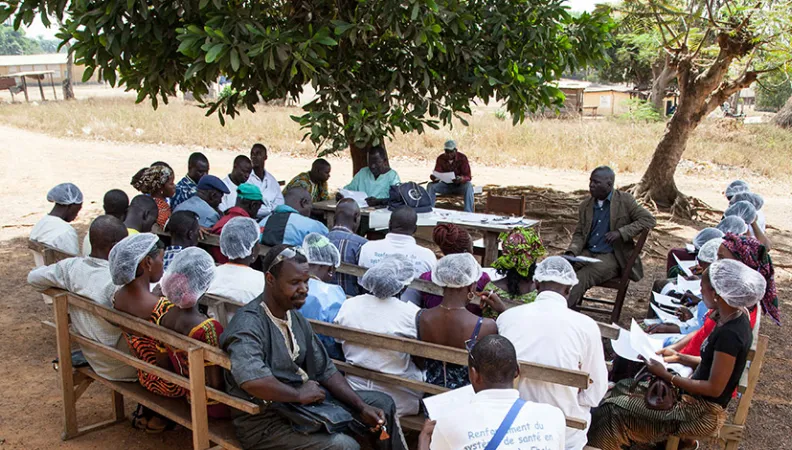
-
Project start date
-
Status
Ongoing
-
Project end date
-
-
Financing amount (Euro)
-
4,4 M€
-
Country and region
-
Benin, Guinea, Togo
The project is working to strengthen the capacities of public health staff in West Africa to prevent, detect and respond to health crises through a gender-sensitive One Health approach.
Public health human resources, a key link in epidemic control
Back in 2006, the World Health Organization (WHO) drew attention to a “human resources for health crisis” around the world. Public health human resources (PHHR), with their great diversity of professions and profiles, are an essential link in the response to health crises. They need to be further strengthened to deal with epidemics.
West Africa is a region highly vulnerable to epidemics. Regional and subregional strategies have been developed to strengthen the resilience of health systems to risks of health disasters. But the implementation of these strategies remains inadequate in the region. In addition, the solutions deployed are still too gender-blind, while women and men are not affected in the same way by viruses, the measures put in place to address them, and the resulting socio-economic consequences.
Today, more than 75% of emerging infectious diseases are zoonoses, meaning diseases caused by infectious agents transmitted between animals and humans. It is therefore necessary to take a holistic preventive One Health approach, integrating human health, animal health and environmental health, while being gender-sensitive. The objective is to prevent the emergence of new infectious diseases, rather than seeking to stop them from spreading.
Prevent, detect and respond to health crises through a One Health approach
The Project to Strengthen Public Health Human Resources (PHHR) aims to contribute to reducing gender inequalities and mortality in the event of health crises in West Africa by 2030, through the joint work with regional health organisations and the target countries: Benin, Guinea and Togo.
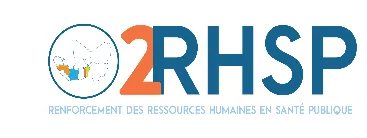
More specifically, the project aims to strengthen the management and production capacities of PHHR in the community of West Africa to prevent, detect and respond to health crises through a gender-sensitive One Health approach.
The project is based on two main lines of action:
• Establish robust and resilient PHHR development policies in West Africa, meeting needs in terms of the security of information systems, One Health and gender, in regional organisations and in the three target countries in the Gulf of Guinea
• Improve the provision of training for public health stakeholders in the community of West Africa, meeting the needs of PHHR and in line with WHO quality standards, by stepping up support for national public health institutes in the target countries
The project is consistent with the strategic frameworks of the African Centres for Disease Control and Prevention (Africa CDC), and aims to address the issues it has identified for the development of national public health institutes and public health staff in Africa. In addition, Africa CDC has recently reaffirmed that strengthening PHHR in Africa involved supporting women’s access to training and management positions in public health, to ensure their participation and leadership in this field.
Comprehensive assessment of public health needs in West Africa
A comprehensive assessment of the capacities and needs has been conducted in the regional public health organisations, in West African countries and their training institutes, as well as among the stakeholders operating in the field of PHHR. It has made it possible to identify the activities to be implemented, and prepare a gender action plan and a mapping of all the stakeholders in the sector.
This comprehensive assessment comprised an analysis focused on the consideration of the One Health approach and gender issues. Recommendations have been made and enabled a readjustment of the project, taking the actual needs of the regional organisations and target countries into account. This study has also enabled the final decision to be made on the geographical area for the implementation of the project, which now covers three countries: Benin, Guinea and Togo.
Similar Projects
Health Sector Support Programme in Guinea
Ongoing
2024 - 2028
Funders : European Union, Government of France
PMSAN 2: Multisectoral Food and Nutritional Security Programme II
Ongoing
2024 - 2028
Funders : European Union, Agence Française de Développement
In the News
Key Priorities to Address Antimicrobial Resistance in Dominican Republic
Published on November 20 2025
In Southeast Asia, providing long-term support to the circular economy, health and security
Published on October 6 2025



